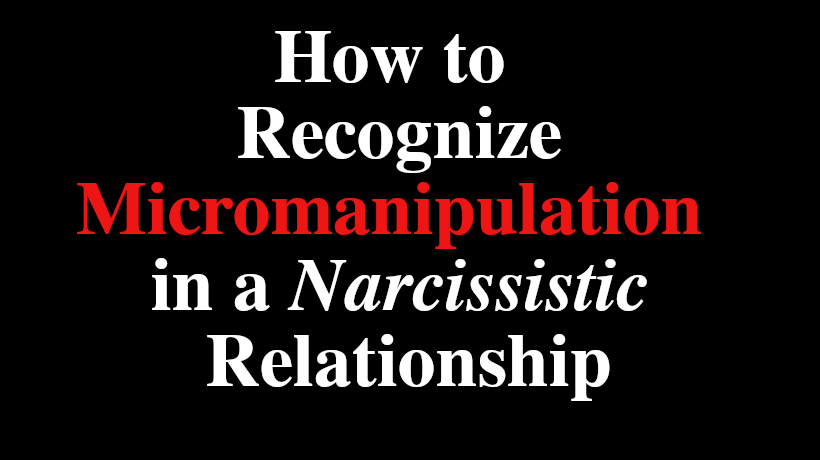Narcissists love manipulation and being in control. The Psychological Harassment Information Association describes manipulation as when the abuser is using personal, private, and sensitive information to destabilize the victim (2010). But why do they do choose to manipulate and bring their loved ones down?
Narcissists deal with incredibly low self-esteem. When they are criticized or given feedback, they may feel that it is a personal attack on them and lash out.
Kristy Lee Hochenberger, an adjunct faculty member at Syracuse University and a Doctoral student in Psychology at Capella University, says, “They feel entitled to power, status, and whatever they deem necessary: money, attention, gifts, advancements, etc. If a manipulator is sensing they are losing their friend, lover, or influence at work, they will do anything necessary to regain that power… including rewriting the story.”
Rewriting the story through direct manipulation
Narcissists may manipulate you through direct or indirect manipulation. Direct manipulation is used to “incite empathy from the victim,” says Hochenberger. An example of this would be threatening suicide if their partner wants to leave the relationship. Hochenberger informs that the purpose of this is to awaken the caretaker trait and keep their partners close.
To avoid being directly manipulated through these means, create clear boundaries between you and the narcissist. Hochenberger suggests saying something along the lines of “I understand you are upset, and I will support you in getting help, but you cannot direct threats at me or make me stay with you to keep you from harming yourself.”
Micromanipulation
When direct and covert strategies don’t work, narcissists may turn to micro-manipulation. Micro-manipulation is used to gain empathy and sympathy for the narcissist, thereby changing the narrative around to make them look like the victim.
“These brief comments are made in passing or casual conversation meant to hit heavy and unexpectedly and require the victim to go back to the manipulator for clarification,” Hochenberger says.
These tactics are simply a ploy to gain attention; to drive you back to them. Hochenberger explains that the insertion of this information is used to shock the other person into giving support and sympathy. An example of this would be a narcissist saying they have an appointment that could go over if the appointment doesn’t turn into extra tests to look for cancer.
The point here is that they could have easily just have said that they may be running late due to an appointment. But the fact that they add shocking and unexpected information bombs to win your sympathy is what makes this phrasing manipulative.



